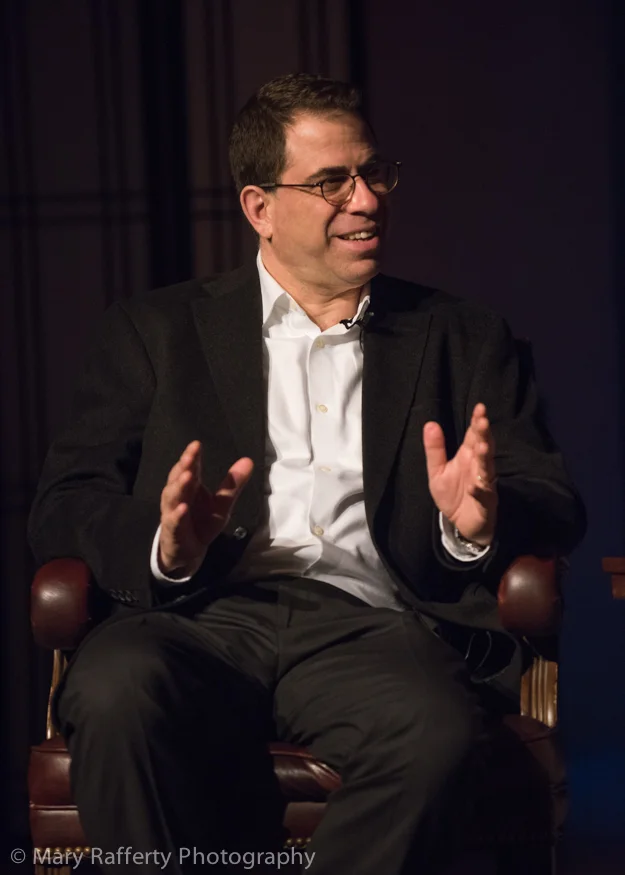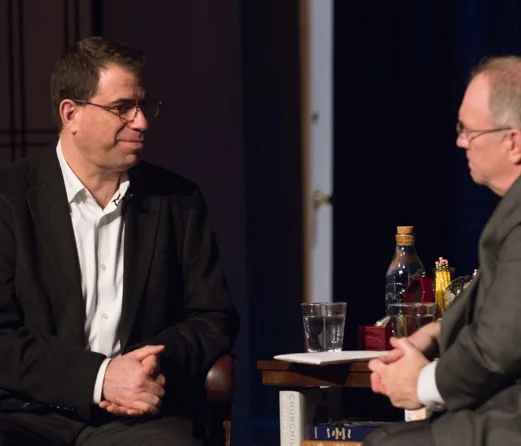ETHAN MICHAELI ON THE 2016 ELECTION
Ethan Michaeli
From the Archives - The Defender Revisited
In his book, The Defender, Ethan Michaeli charts the vital role that the newspaper played in informing and energizing the political landscape for the African American community of the 20th century. In the wake of the 2016 presidential election, we asked Ethan to add commentary to our March 2016 conversation to help put both the political and regional shift into context.
Q: The election results indicate a clear and widening political divide in the urban areas of our country, a shift that the polls had predicted in percentage points, but not in voter blocks that extend to the heartland. Despite Barack Obama’s wide-ranging efforts, Hillary Clinton fell short of re-energizing the Obama base.
In your book, you document how The Defender brought political issues to the forefront in the African American community to build a formidable voting block for every president in the 20th century. Have we just witnessed a seismic shift in how this information will be communicated in the future and can you comment on how important the African American and Hispanic vote will be in future elections outside of the traditional urban areas of the country?
A: Certainly we are in the midst of an unprecedented moment in the state of the American media, as newspapers and broadcast news hemorrhage revenue collectively and shrink in number, while the websites which aspire to replace them struggle to achieve the same level of professionalism and respect in an electronic landscape dominated by opinion and invective sites, many of which assert that they are serious news organizations as well. Donald Trump used a Twitter account and free cable television news coverage to out-organize first a host of Republican rivals, and then Hillary Clinton’s well-funded, but traditional, political operation, a mixture of ground operation and well-produced television commercials. Twitter’s strict word limits and public, anonymous structure advantage simplified messages laced with stereotype and high emotion – Trump’s angry rhetoric was a perfect fit.
Nevertheless, the African American electorate remains the single most important electoral group within the Democratic coalition because of their relative size, augmented by great loyalty to the party, as well as their geographic concentrations in Southern states from Virginia to Florida and in urban areas of key Northern states. In every significant Democratic state, African American voters are decisive in races for senator and governor, vetting would-be national candidates long before they ever enter a presidential primary. In this year’s presidential campaign, African American voters in the South and the Midwest, especially Illinois, gave Hillary Clinton the edge over rival Bernie Sanders.
Q: The Defender was a major factor in the rise of Barack Obama’s political career and his presidency. With the rapid decline of print influence, that unique message appears to have been fractured. Are there examples in your book that could have predicted the strong opposition to the continuation of a democratic agenda?
A: Writing this book, I used a historical lens that began at the end of the 19th century and continued all through the 20th, and a distinct pattern became obvious: Whenever two steps forward are taken when it comes to racial justice, a reaction that takes at least 1 ½ steps back is sure to follow.
The gains of Reconstruction in the South after the Civil War, a period in which African Americans participated successfully in politics and business, was followed by Klan terror and lynching, an era which its heralds described as Redemption, leaving Jim Crow segregation as the law of the land. So too did the War on Drugs begin on the heels of the passage of the Voting Rights Act, launching an era of mass incarceration which has decimated generations of young, urban African American men and disrupted innumerable families as well as whole communities. In 1983, The Defender anticipated the white backlash when Harold Washington won the Democratic primary to become Chicago’s first African American mayor. Even though Chicago was a traditional Democratic bastion and Washington’s moderate Republican rival was known for his own liberal record on civil rights, The Defender correctly predicted that the Republican would soon resort to a stark racial appeal and that this appeal would draw off the vast majority of white voters. In the end, Washington won only with unprecedented African American turnout which defeated a Republican campaign led behind the scenes by the city’s major white Democrats under the banner “Before it’s too late.”
Q: Based on the efforts of Wilson, Truman and Eisenhower to connect with the African American community during their presidencies, can you suggest some key policy agenda items that need to be established for the Trump administration to bring these polarized factions closer together?
A: Donald Trump entered the national political arena as the spokesman for the Birther campaign, a bizarre, nonsensical conspiracy theory whose essence is to deny the citizenship of the first African American president. African Americans, moreover, are the principal targets of the Klan, white supremacists and other extremist groups who supported Trump during the campaign. If he hopes to build relations with the African American community, he could start with a sincere apology and a repudiation of these groups. But on the policy side, Trump promised to initiate a massive infrastructure program and also promised to improve public safety in the inner cities. If he actually delivers on either of those two items, he would also score with African Americans. More specifically, he could support re authorization of the Voting Rights Act and other previously bipartisan legislative items that were once part of the national consensus on civil rights.
BUY ETHAN MICHAELI'S THE DEFENDER HERE
DE USURIS
Free Reading Presentation of ROCKNE
This Weekend
"ROCKNE is a vibrant new musical about one man's journey to discover what is important in life. Born to Norwegian immigrants, Knute Rockne rose to become the greatest coach in the history of college football, turning Notre Dame into an athletic powerhouse. March with the ROCKNE story down the gridiron of life to come to understand that 'there's something in the game'."
Football…Fame…Family
Free Reading at Northwestern University on November 19th at 2 pm.
More Info HERE
Listen to CONVERSATION with Director and Lyricist David H. Bell
Make a Wish!
Visit Eleanor's Very Merry Christmas Wish List
CONVERSATIONS Podcasts
To listen to all of our programs, visit:
https://www.conversationswithedtracy.com/media







![rockneinvite_nu_FINAL[2].jpg](https://images.squarespace-cdn.com/content/v1/56bfaee52b8dde7190c18cf1/1479250007603-4096NGSW0U23CA0YWK8N/rockneinvite_nu_FINAL%5B2%5D.jpg)
![4H5A6407[1].jpg](https://images.squarespace-cdn.com/content/v1/56bfaee52b8dde7190c18cf1/1479250021849-ERMI1KW3Z4M58S2YZYH7/4H5A6407%5B1%5D.jpg)

